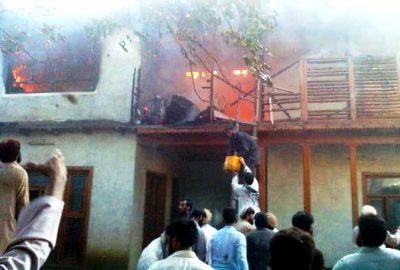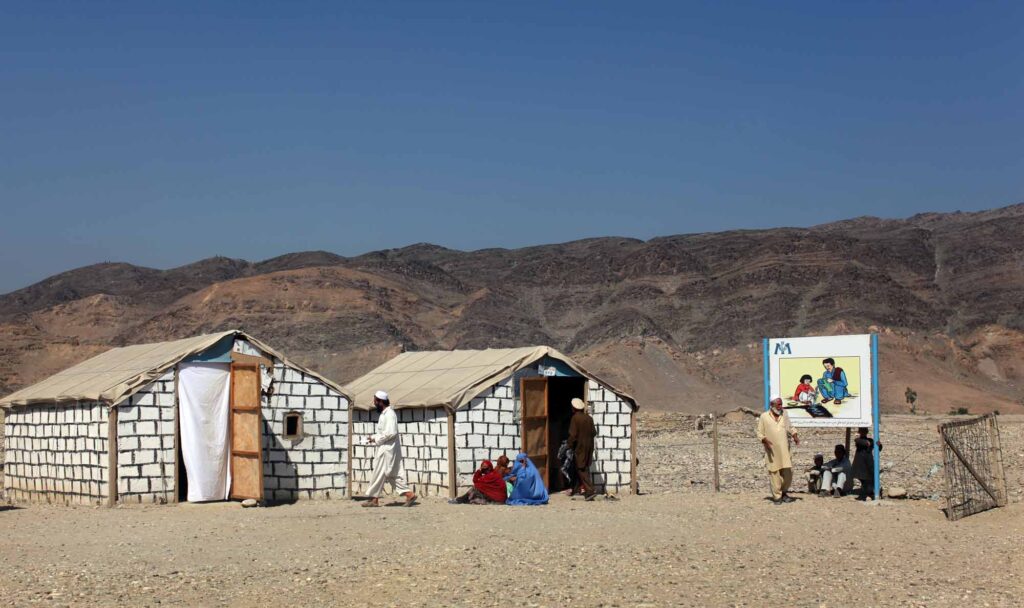When an emergency occurs in a remote village in eastern Afghanistan’s Kunar province, a community member will fire a single gunshot into the air as a signal to call for help. It was early morning – before 7 a.m. – when Mr. Ziauddin*, a Community Response Team leader for the district, heard a gunshot, and moved quickly to see what had happened.
A two-story house in the district had caught fire due to an electrical short. Though small, the building was packed with six brothers and their families, all who were home when the fire began.
Fortunately, Ziauddin knew exactly who to contact about the emergency. He had previously attended a training session on Community-based Emergency Preparedness held by International Medical Corps in his village. International Medical Corps prepares communities in advance how best to respond to adversity on their own when it occurs, creating a response capability that is both immediate and helps build self-reliance. After learning of the emergency, Ziauddin called other International Medical Corps-trained response team members and told them to come to the site of the fire.
Almost immediately, the response team arrived and began to act. They cut off the electrical line responsible for the fire, and quickly rescued family members still inside the burning building. Next, they fetched water to control the flames, and began to use first aid kits to administer treatment to the wounded. Finally, the team contacted the provincial director of the Afghanistan National Disaster Management Authority to request essential supplies for the affected families.

Fires like this one are not uncommon in eastern Afghanistan. Particularly in the cold winter months, members of mountain villages use open fires to keep warm, which can cause their timber houses to catch fire. This is one reason International Medical Corps’ Emergency Preparedness and Response Program is so vital in this area. We teach community members how to prepare for and respond quickly to natural disasters and other emergency situations. International Medical Corps is also seeing success from its Emergency Preparedness and Response Program in another province of eastern Afghanistan – Nuristan.
Last December, Mr. Khan* was driving in his car when a motorcycle with two riders sped past him. A few feet later, the driver of the motorcycle made a sharp turn and, as if out of nowhere, a car appeared and crashed into the cycle.
Khan ran to the victims. He took a second to observe the damage –the victims were severely bleeding, and they both had fractured bones. Khan knew there was not a hospital or health post nearby, and so he began to use his emergency response training to treat the victims himself.
He tore the scarves off of the riders’ faces and wrapped them tight around their wounds to control the extensive bleeding. He also made a sling using a scarf, and created an improvised splint out of cardboard. Afterward, Khan took the victims to the hospital in his car.
When the doctor examined the patients, he was satisfied with the way Khan had treated the victims, and after some further treatment both patients were discharged.
A few days later, the two men came to visit Khan. They brought a traditional gift – a goat – with them to show their appreciation for his help. “If you had not been there,” they told him, “We would have died.” Though flattered, Khan could not take all the credit. He said the goat should be given to International Medical Corps, the organization that is training community members to become their own best First Responders.
* Not his real name.
